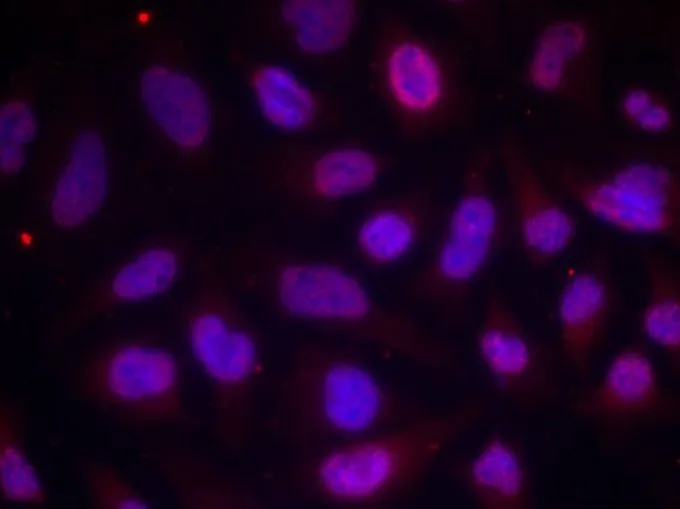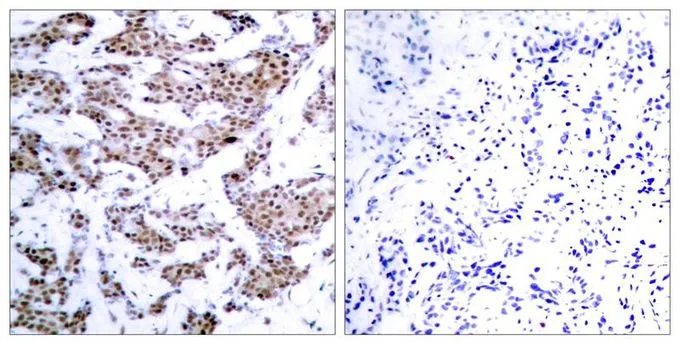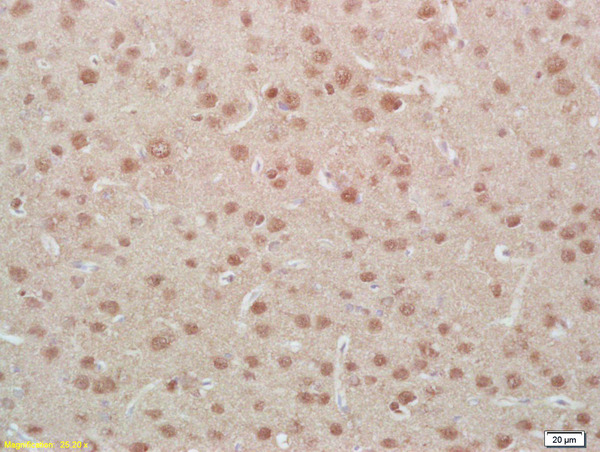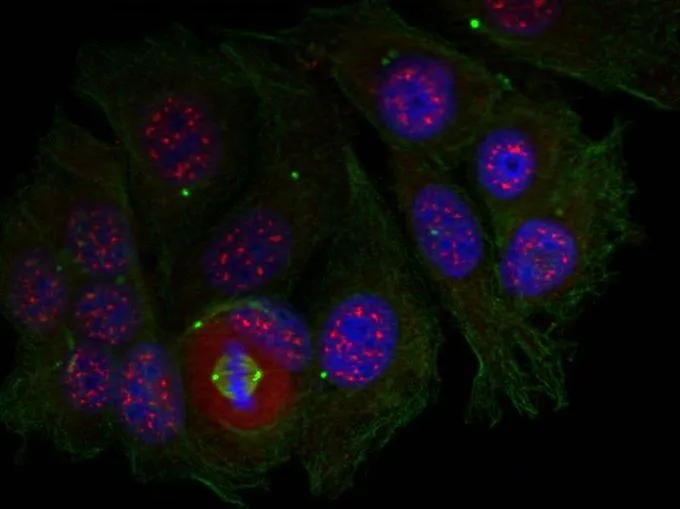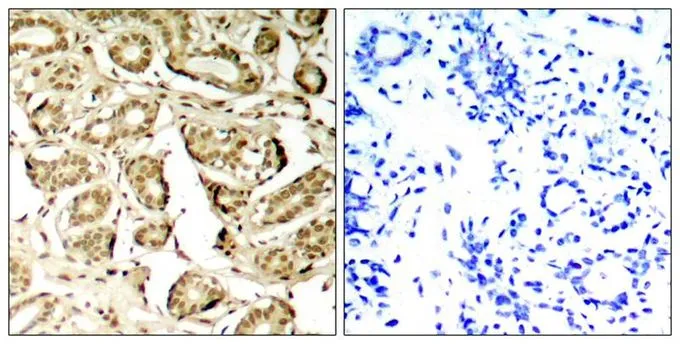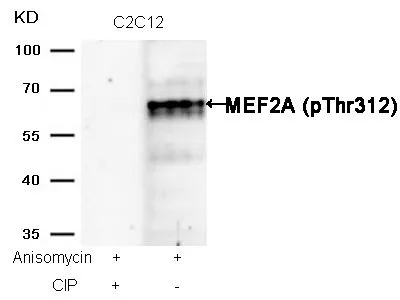
WB analysis of extracts from C2C12 cells treated with Anisomycin or calf intestinal phosphatase (CIP) using GTX50114 MEF2A (phospho Thr312) antibody.
MEF2A (phospho Thr312) antibody
GTX50114
ApplicationsImmunoFluorescence, Western Blot, ImmunoCytoChemistry, ImmunoHistoChemistry, ImmunoHistoChemistry Paraffin
Product group Antibodies
ReactivityHuman, Mouse
TargetMEF2A
Overview
- SupplierGeneTex
- Product NameMEF2A (phospho Thr312) antibody
- Delivery Days Customer9
- Application Supplier NoteICC/IF: 1:100-1:200. IHC-P: 1:50-1:100. *Optimal dilutions/concentrations should be determined by the researcher.Not tested in other applications.
- ApplicationsImmunoFluorescence, Western Blot, ImmunoCytoChemistry, ImmunoHistoChemistry, ImmunoHistoChemistry Paraffin
- CertificationResearch Use Only
- ClonalityPolyclonal
- Concentration1 mg/ml
- ConjugateUnconjugated
- Gene ID4205
- Target nameMEF2A
- Target descriptionmyocyte enhancer factor 2A
- Target synonymsADCAD1, RSRFC4, RSRFC9, mef2, myocyte-specific enhancer factor 2A, MADS box transcription enhancer factor 2, polypeptide A (myocyte enhancer factor 2A), serum response factor-like protein 1
- HostRabbit
- IsotypeIgG
- Protein IDQ02078
- Protein NameMyocyte-specific enhancer factor 2A
- Scientific DescriptionThe protein encoded by this gene is a DNA-binding transcription factor that activates many muscle-specific, growth factor-induced, and stress-induced genes. The encoded protein can act as a homodimer or as a heterodimer and is involved in several cellular processes, including muscle development, neuronal differentiation, cell growth control, and apoptosis. Defects in this gene could be a cause of autosomal dominant coronary artery disease 1 with myocardial infarction (ADCAD1). Several transcript variants encoding different isoforms have been found for this gene.[provided by RefSeq, Jan 2010]
- ReactivityHuman, Mouse
- Storage Instruction-20°C or -80°C,2°C to 8°C
- UNSPSC12352203

